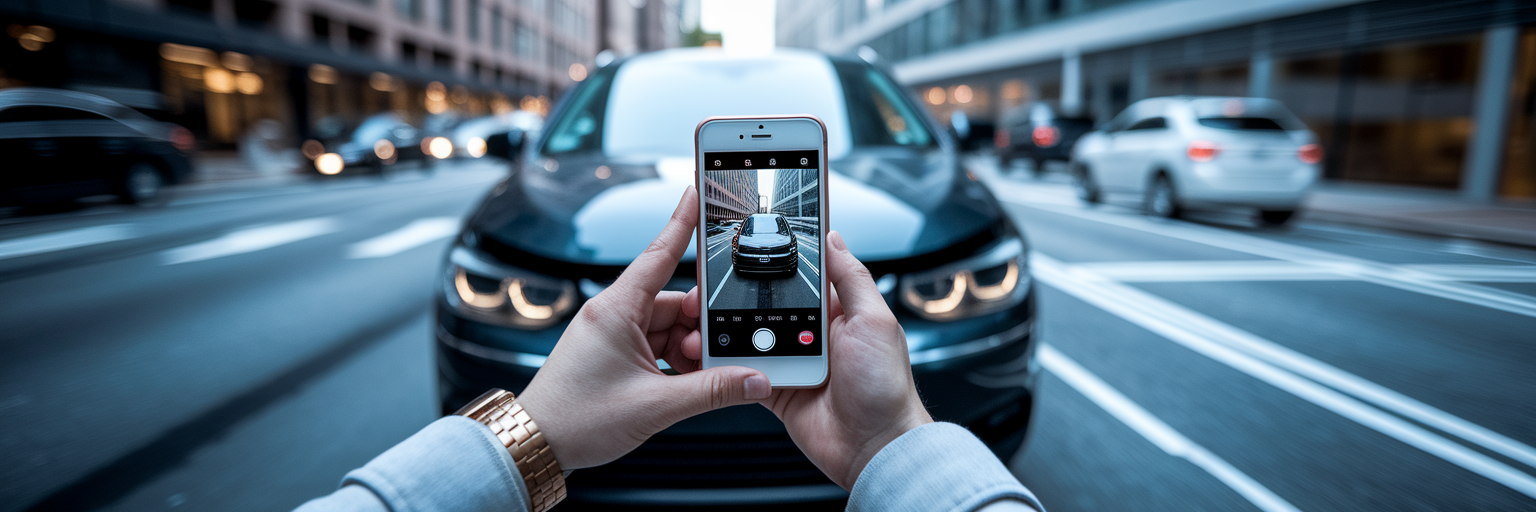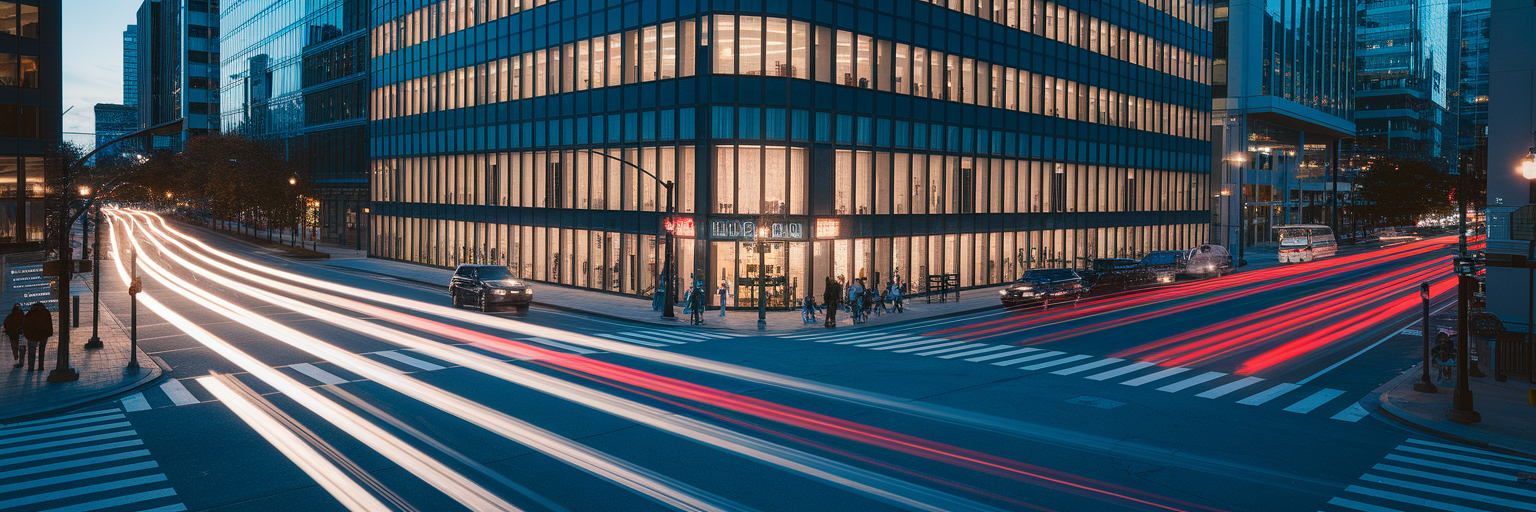Anyone who drives in Midtown Atlanta knows Peachtree Street is more than just a road. It's the city's main artery, a constant flow of cars, pedestrians, and commerce. A collision here feels different, amplified by the energy of the city. The moments that follow are confusing, but knowing the right steps can protect your safety and your rights. This guide provides a clear path forward.
Immediate Actions at the Accident Scene
The sound of a collision is jarring, and your first instinct might be panic. Instead, take a steadying breath and focus on this emergency checklist. Your priority is safety and fulfilling your legal duties. Everything else can wait.
1. Check for Injuries. Before anything else, assess yourself and your passengers. If anyone is hurt, call 911 immediately. It is critical not to move someone with a potential neck or back injury unless they are in immediate danger, such as from a fire.
2. Secure the Scene. Turn on your hazard lights instantly. A Midtown car accident on a road as busy as Peachtree requires you to clear the travel lanes if possible. If the vehicles are drivable and the crash was minor, carefully move to the shoulder or a nearby side street. This prevents a secondary collision and eases the inevitable traffic jam. Navigating the aftermath of a collision is a known challenge for drivers in Atlanta.
3. Report the Incident. In Georgia, you are legally required to report any accident involving injury, death, or apparent property damage of $500 or more, as outlined by the Georgia Department of Driver Services. Calling 911 is the most direct way to fulfill this obligation. This single call brings police and medical responders to the scene and creates the official report that is the foundation for what to do after a car accident Atlanta.
4. Be Clear with the 911 Operator. When you call, provide a precise location. Instead of just "Peachtree Street," say "Peachtree Street near the Fox Theatre" or "at the intersection of Peachtree and 10th Street." State that there has been a car crash and report whether there are injuries. This specific information ensures the right help arrives as quickly as possible.
Documenting the Crash with Precision

Once you are safe and help is on the way, your smartphone becomes your most important tool for evidence collection. Memories fade and stories can change, but photographs capture objective facts. The chaotic moments following a Peachtree Street crash Atlanta are your only chance to document the scene exactly as it was. Don't hesitate; take more photos and videos than you think you will need.
Start by capturing the entire scene from multiple angles. You want to show how the vehicles came to rest in relation to each other and their surroundings. From there, focus on the specifics. A short, slow video panning across the entire area can also capture dynamic elements like traffic flow or signal timing that still photos might miss. Use this checklist to guide your documentation.
| Evidence Type | What to Capture | Why It's Important |
|---|---|---|
| Wide-Angle Scene Photos | All vehicles, lane markings, traffic signals, nearby landmarks (e.g., Colony Square, High Museum) | Establishes context and shows how the accident occurred relative to the environment. |
| Close-Up Damage Photos | Dents, scratches, broken glass, and deployed airbags on ALL involved vehicles. | Provides clear proof of the extent and location of impact for insurance adjusters. |
| Road and Weather Conditions | Skid marks, debris on the road, wet pavement from rain, time of day (glare). | Documents contributing factors that could help determine fault. |
| Driver and Vehicle Information | Photos of the other driver's license, insurance card, and license plate. | Serves as an undeniable backup to manually exchanged information. |
| Witness Information | A photo of a witness's business card or a note with their name and number. | Ensures you have contact details for crucial third-party accounts. |
Exchanging Information and Speaking with Police
After you have captured photographic evidence, your focus shifts to the people involved. In every conversation, your goal is to be calm, factual, and cautious. What you say and what information you collect can significantly impact your claim later on.
Politely exchange the following essential information with the other driver. Use a notes app on your phone to ensure accuracy:
- Full name and address
- Phone number and email address
- Insurance company and policy number
- Driver's license number and license plate number
The most important rule in these interactions is to never admit fault. An automatic "I'm sorry" can be misinterpreted as an admission of guilt by an insurance adjuster looking to deny a claim. Stick to the facts of what happened. If witnesses stop, politely ask for their name and phone number. Explain that their neutral perspective could be very helpful, but be respectful of their time, as people on Peachtree are often in a hurry.
When the Atlanta Police Department officer arrives, provide them with the facts. Before you leave the scene, make sure you get the officer's name, badge number, and the police report number. This report is a cornerstone of how to file a car accident claim Georgia. Once you have this information, you'll be prepared for the next steps, and you can contact us for guidance.
Why Peachtree Street Collisions Are Unique

The reason this detailed approach is so important is that a crash on Peachtree Street is fundamentally different from one on a quiet road. The environment itself creates unique challenges. You are contending with a high volume of vehicles, complex intersections with multiple turn lanes, and a constant stream of commercial trucks, scooters, and cyclists.
This density leads to specific accident patterns. The stop-and-go traffic results in frequent rear-end collisions, while the numerous intersections at places like 5th or 10th Street are hotspots for T-bone crashes. The constant flow of people crossing at intersections means pedestrian accidents are also a serious concern. This urban complexity often leads to conflicting stories about who had the right-of-way. With so many moving parts, the independent evidence you gathered becomes your strongest asset in proving what really happened. An experienced legal team familiar with these local dynamics can anticipate these challenges and build a case that accounts for them.
Filing a Claim with an Atlanta Car Accident Attorney
Once you have left the scene, the process of recovery begins. You should contact an attorney if there are any injuries, even if they seem minor at first, if there is significant vehicle damage, or if the other driver is uncooperative or disputes fault. These are signs that the insurance claim could become difficult.
Georgia is an "at-fault" state, which means you must prove the other party's negligence to recover damages. This is where professional legal help becomes invaluable. An experienced Atlanta auto accident lawyer Midtown will handle the entire claims process on your behalf, from managing all communications with insurance companies to compiling your evidence into a persuasive demand package. They will fight to secure full compensation for all your losses, drawing on a history of successful outcomes for clients.
An attorney ensures no category of damage is overlooked, pursuing compensation for:
- Current and future medical bills
- Wages lost from time off work
- The cost to repair or replace your vehicle
- Pain and suffering caused by the crash
Navigating the aftermath of a crash is stressful. Letting a dedicated Atlanta car accident lawyer handle the complexities allows you to focus on what matters most: your recovery.

